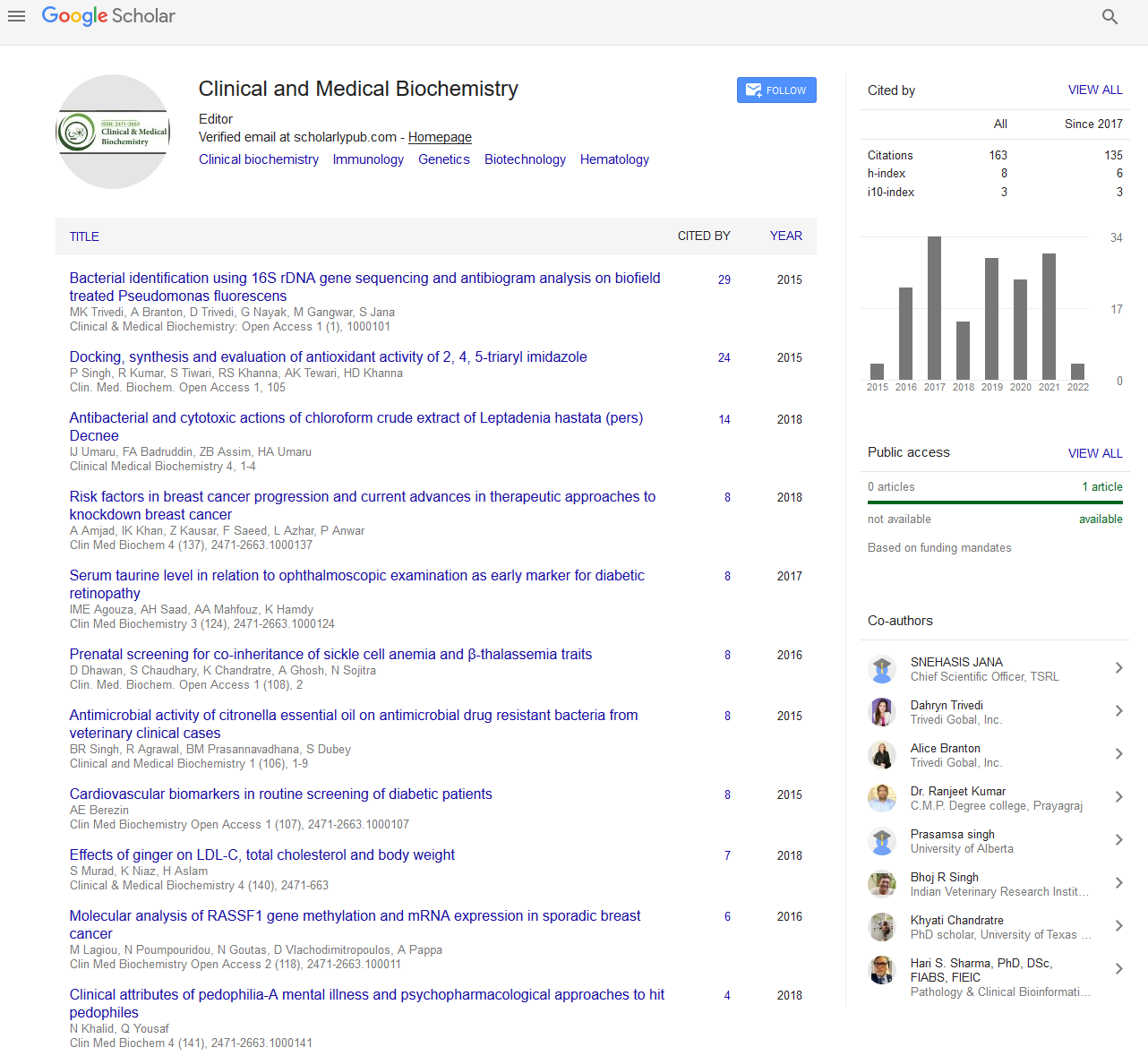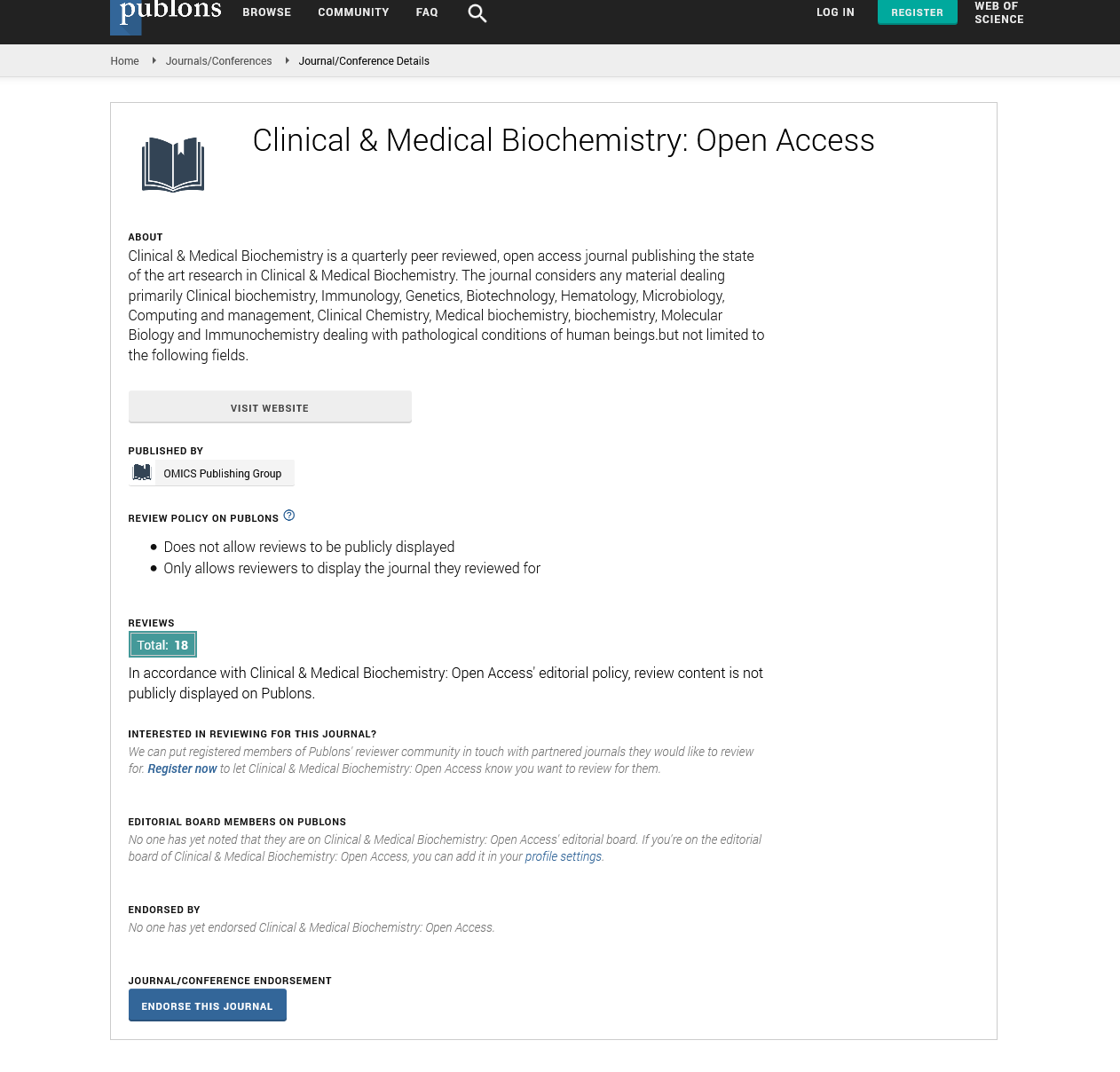Indexed In
- RefSeek
- Directory of Research Journal Indexing (DRJI)
- Hamdard University
- EBSCO A-Z
- OCLC- WorldCat
- Scholarsteer
- Publons
- Euro Pub
- Google Scholar
Useful Links
Share This Page
Journal Flyer

Open Access Journals
- Agri and Aquaculture
- Biochemistry
- Bioinformatics & Systems Biology
- Business & Management
- Chemistry
- Clinical Sciences
- Engineering
- Food & Nutrition
- General Science
- Genetics & Molecular Biology
- Immunology & Microbiology
- Medical Sciences
- Neuroscience & Psychology
- Nursing & Health Care
- Pharmaceutical Sciences
Abstract
Effects of Lactate Dehydrogenase (LDH) in Preeclampsia
Ababio GK, Adu-Bonsaffoh K, Narh G, Morvey D, Botchway F, Abindau E, Neequaye J and Quaye IKE
Background: Lactate dehydrogenase (LDH) is a multifaceted enzyme whose effects in pregnancy related complications e.g., preeclampsia (PE) is now gaining attention. Here we present evidence that LDH levels could contribute significantly to the outcomes of PE. Aim: To determine the effects of LDH in PE. Methodology: The case control study was located at the Obstetrics and Gynaecology department of the KorleBu Teaching Hospital (KBTH). STROBE consensus checklist was adopted. One hundred and forty (140) consented subjects were recruited after ethical clearance was obtained and structured questionnaire administered to them. Four (4) mL blood and 5 mL urine samples were taken for biochemical analysis and urinalysis respectively. Randox and Sysmex automated chemistry analyser was used to quantify blood chemistry. The data was captured as protected health information (PHI) and analysed with SPSS version 22. Results: LDH exposure was associated with higher odds of outcome in preeclampsia (PE) [OR(CI)=4.76(1.26-18.72); p-value=0.0068]. However, with an adjusted OR, LDH categories were associated with birth weight. Notwithstanding the added input, in preeclampsia, increased LDH at <34 weeks of gestation related with decreased birthweight only when platelet, diastolic blood pressure (DBP), pH, bilirubin, parity and liver enzymes each served as covariates in the log linear logit analysis. Conclusion: LDH was associated with low birth weight in PE in a concentration dependent manner under the influence of predictors like pH, platelet and diastolic pressure (DBP) for causality. Therefore, a thoughtful planned foetal delivery under a specific LDH threshold and a regular monitoring of urine pH, full blood count (FBC), and blood pressure might improve the outcomes of PE


